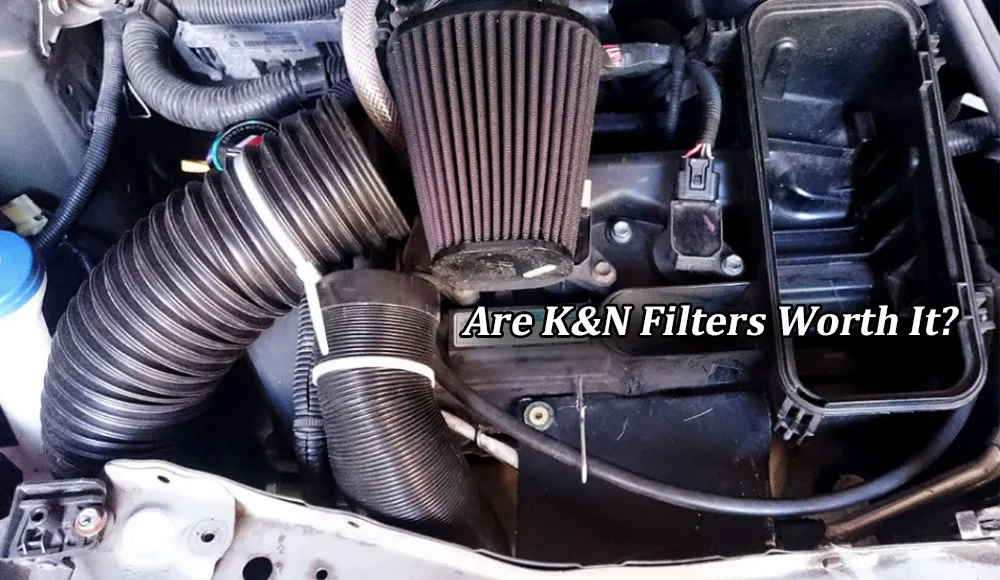Hi there! If you’re like me, someone who enjoys delving into the nuts and bolts of automotive performance, you’ve probably heard about K&N filters. They’ve been a topic of discussion in many car forums and among enthusiasts. The big question that I often hear (and have asked myself) is: Are K&N filters worth it?
Today, I’m going to dive into this question, breaking down everything from their design to their cost-effectiveness, to help you make an informed decision.

What Are K&N Filters?
Unique Features and Design
K&N filters are high-flow air filters designed to improve engine performance. What sets them apart is their oiled cotton gauze material, which is engineered to allow more air into the engine while still trapping dirt and debris.
Technology and Variety
Unlike standard paper filters, K&N’s layered, oiled cotton media is designed to be washable and reusable. They offer a range of products for different vehicle types, from cars to motorcycles, each promising enhanced engine breathing.
The Promised Benefits of K&N Filters
K&N touts several benefits: improved airflow, better engine performance, and increased horsepower. They also emphasize their environmental friendliness due to their reusable nature. It’s a compelling proposition, but let’s delve into how these claims hold up.
Performance Analysis
Effect on Vehicle Performance
I’ve scoured through numerous studies and user experiences to understand this better. The general consensus is that K&N filters do offer better airflow. However, the impact on performance varies by vehicle. Some users report a noticeable increase in horsepower and acceleration, while others find the change minimal.
Expert Opinions and User Testimonials
Most experts agree that K&N filters can marginally improve engine performance, particularly in terms of throttle response. However, the degree of improvement is often debated. User testimonials also tend to reflect this divided opinion.
Cost-Benefit Analysis
Upfront Cost vs. Long-Term Savings
K&N filters are more expensive upfront than standard filters. But considering they’re designed to last the lifetime of your vehicle, the long-term savings can be significant. You won’t need to replace your air filter every 12,000 to 15,000 miles, as is typically recommended for standard filters.
Maintenance Costs
Remember, these filters require cleaning and re-oiling, which involves a maintenance kit. While this is an additional cost, it’s infrequent enough to not be a deal-breaker for most.
Longevity and Durability
Lifespan Comparison
K&N filters are built to last. With proper maintenance, one K&N filter could outlast several traditional filters, making them a more durable option in the long run.
Maintenance and Wear
The cleaning process is straightforward but crucial for maintaining the filter’s effectiveness and longevity. There’s a bit of a learning curve, but once you’ve got it down, it’s pretty simple.
Environmental Impact
Using a reusable filter means less waste. The environmental benefit of reducing disposable filter waste is significant, especially for those conscious about their ecological footprint.
Potential Drawbacks
Criticisms and Engine Safety
One common concern is that the oil from these filters could potentially damage mass airflow sensors. There have been reports of this, but they’re relatively rare. It’s something to be aware of, though.
Warranty and Manufacturer Stance
Some car manufacturers warn against using aftermarket filters like K&N, claiming they can void warranty. This is typically not the case, but it’s worth checking your car’s warranty specifics.
Who Should Consider K&N Filters?
If you’re someone who’s into performance and doesn’t mind the extra maintenance, a K&N filter could be a great addition. However, if you’re just looking for a standard replacement without additional fuss, sticking with a traditional filter might be more your speed.
Conclusion
So, are K&N filters worth it? It depends. They offer potential performance benefits and long-term cost savings, along with environmental perks. However, the initial cost, maintenance requirements, and potential warranty concerns are factors to consider.
In my opinion, if you’re enthusiastic about getting the most out of your engine and are okay with a bit of maintenance, a K&N filter can be a worthwhile investment. But for those who prefer a set-it-and-forget-it approach, the traditional route might be more suitable.


